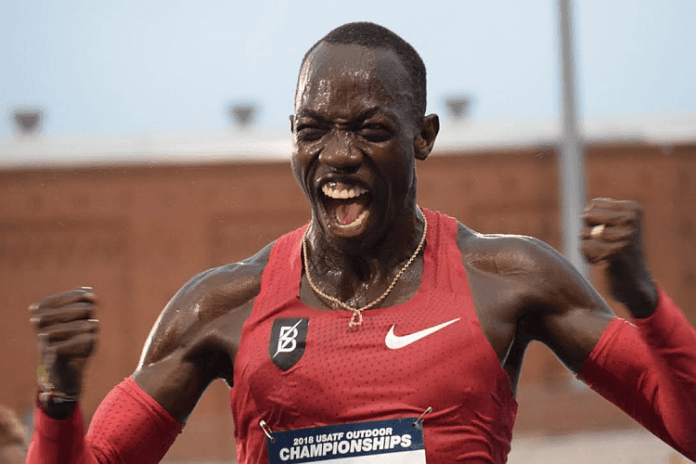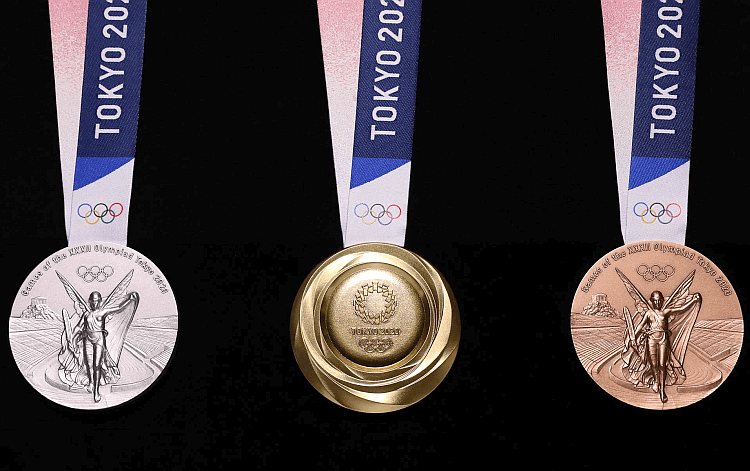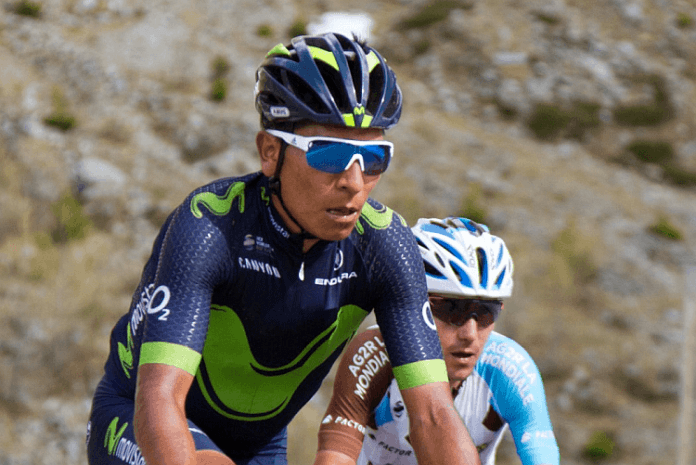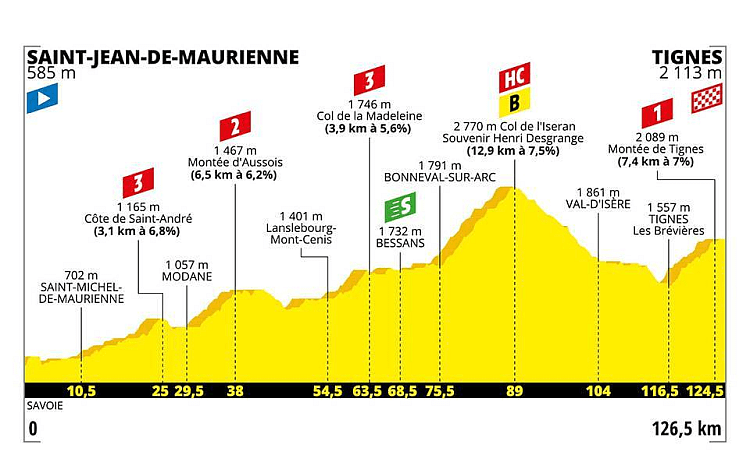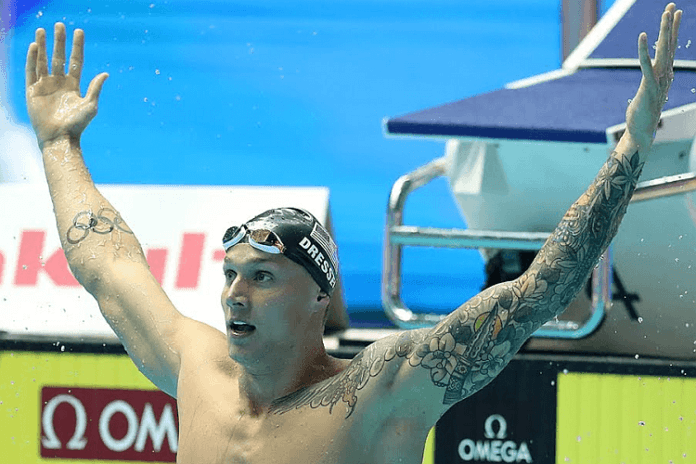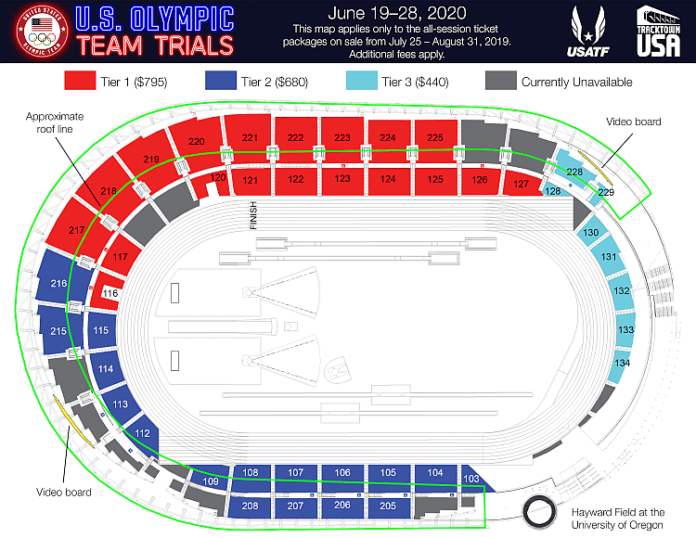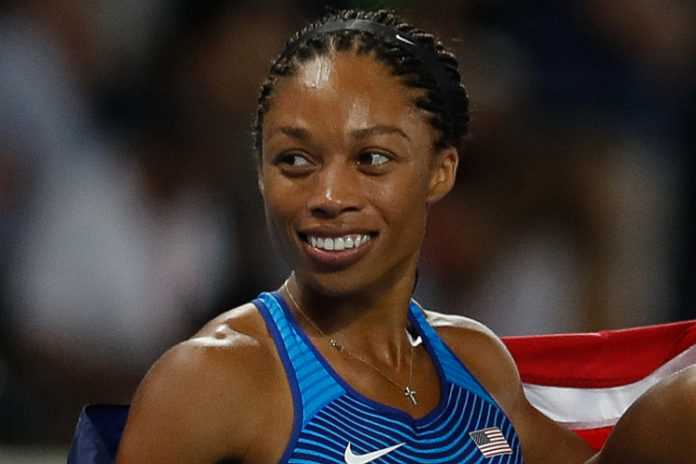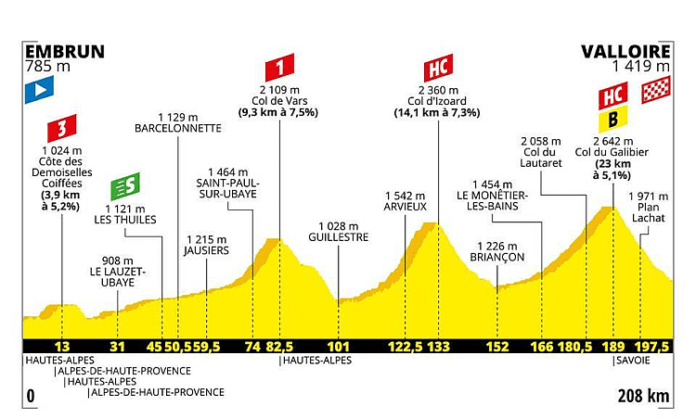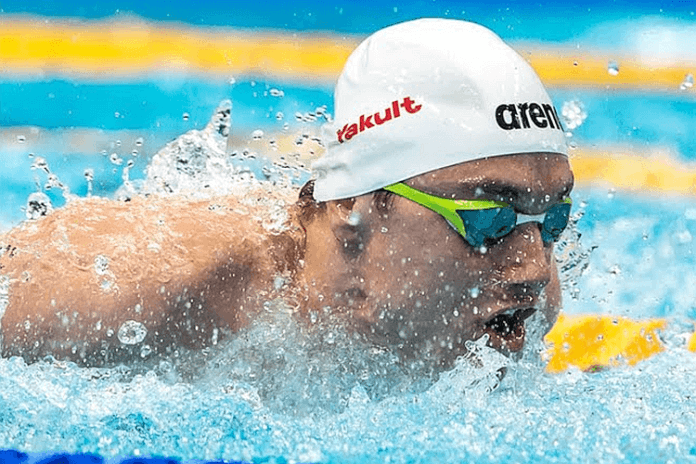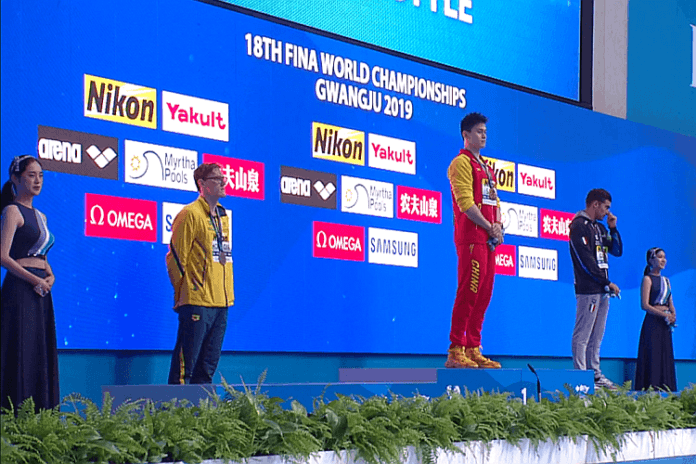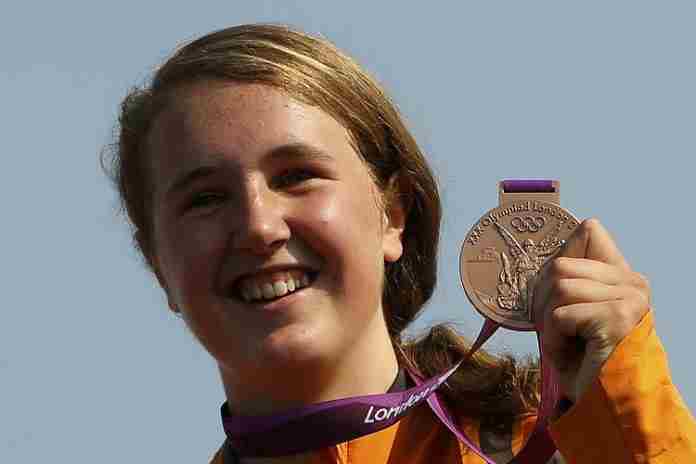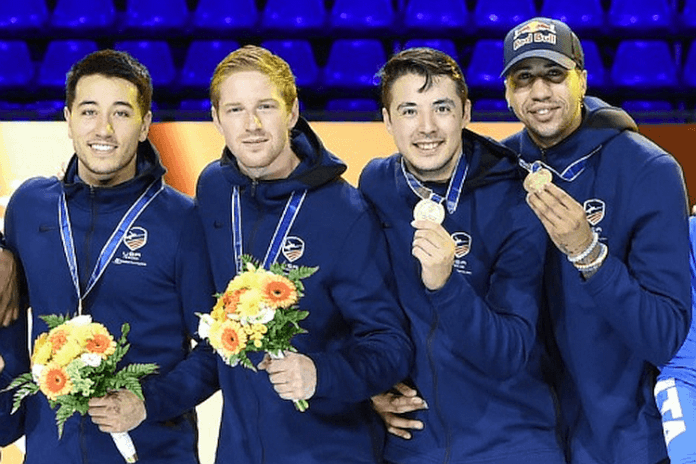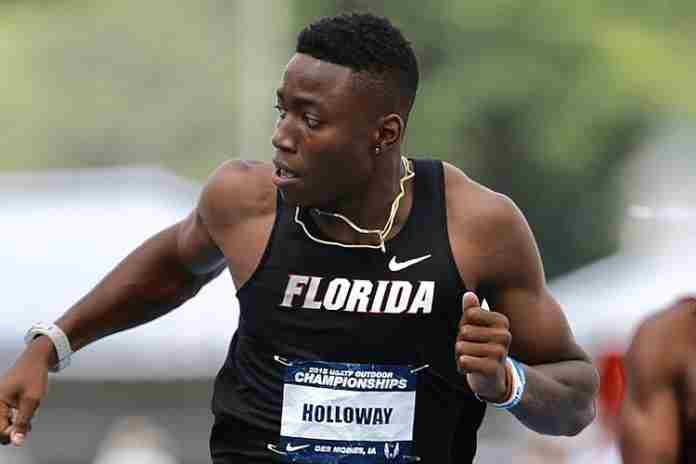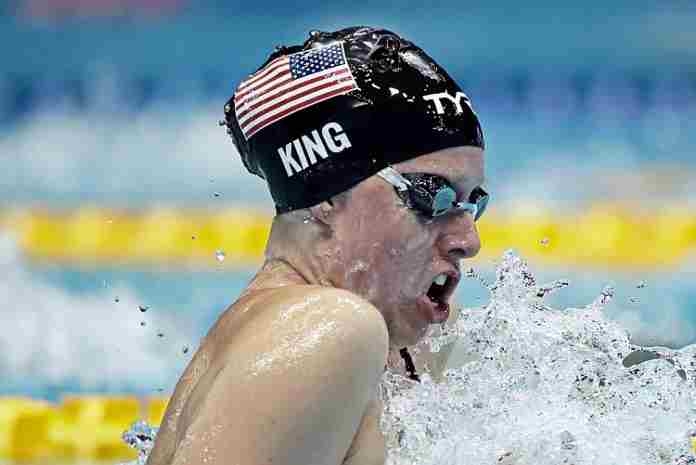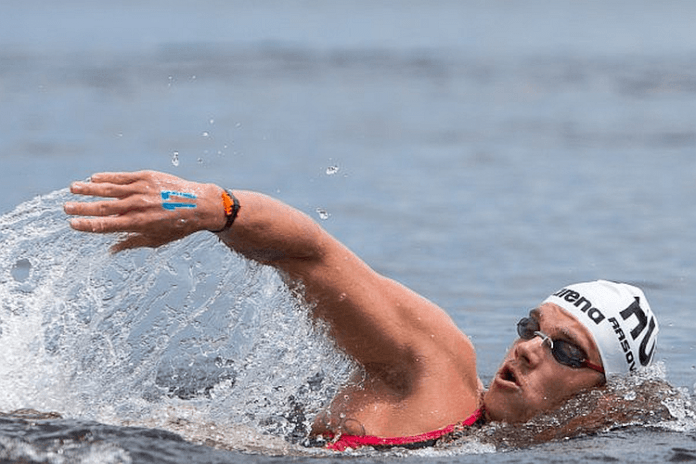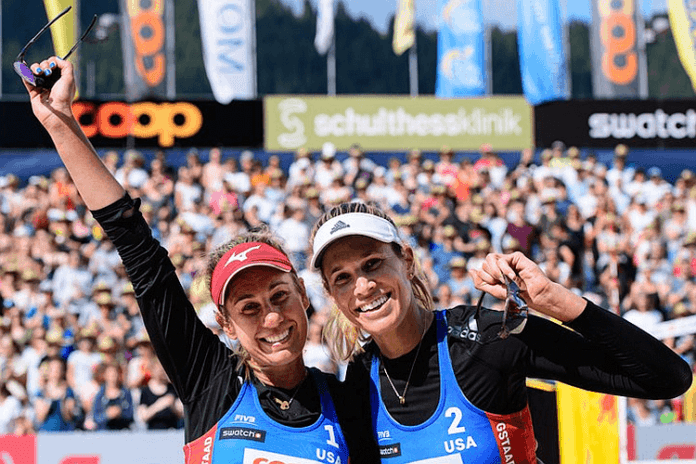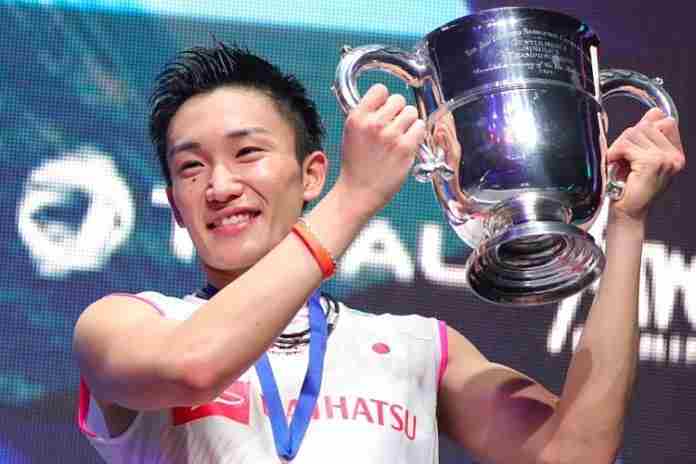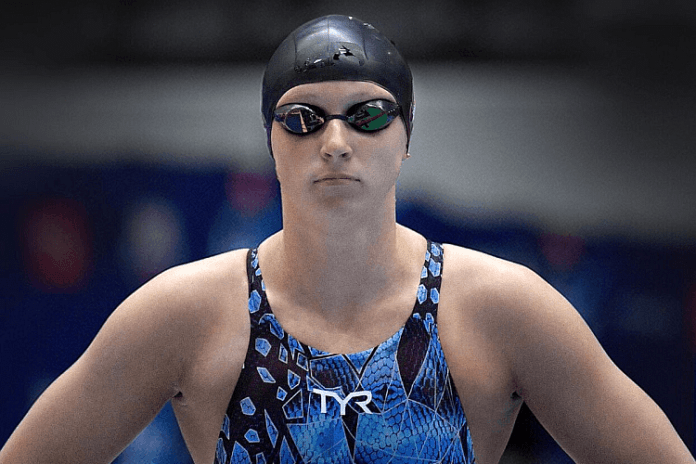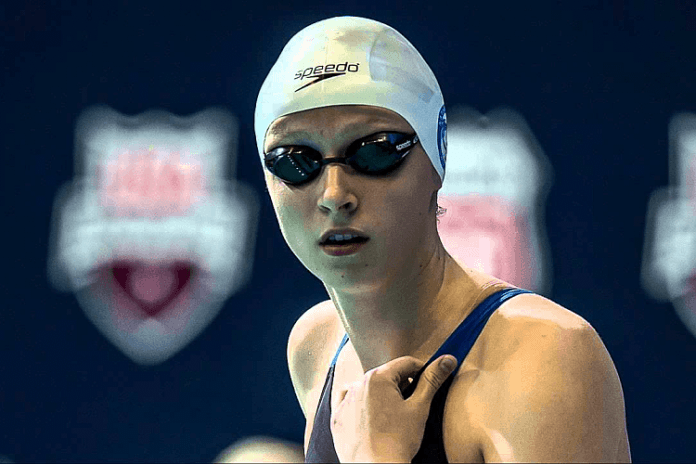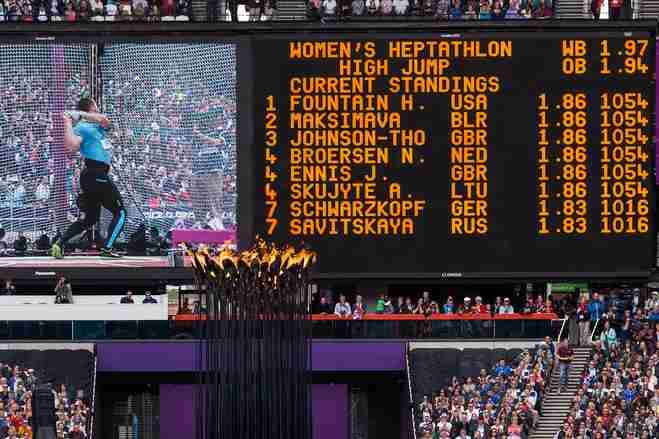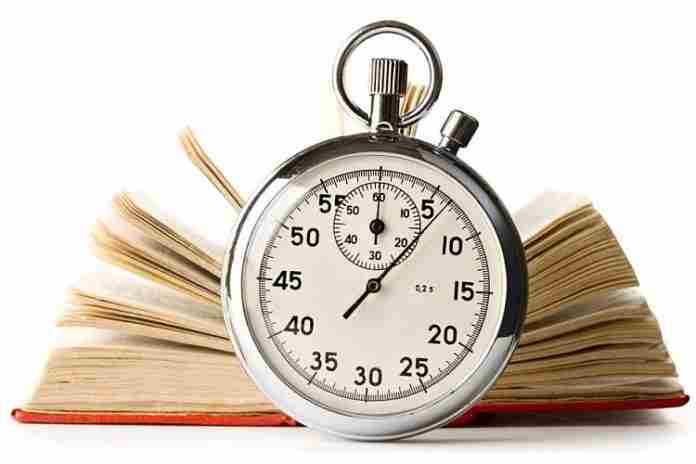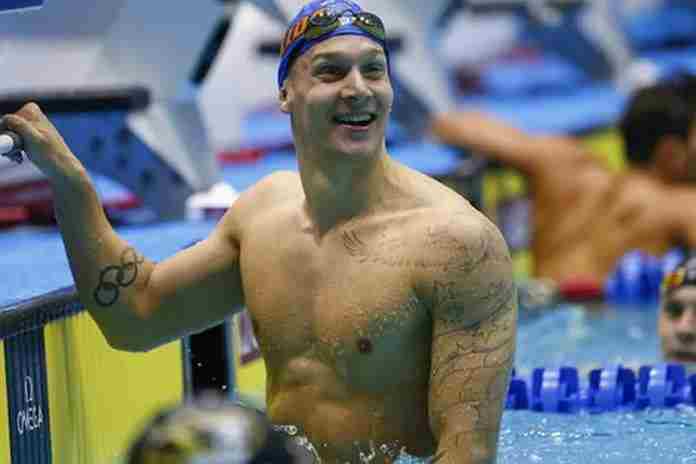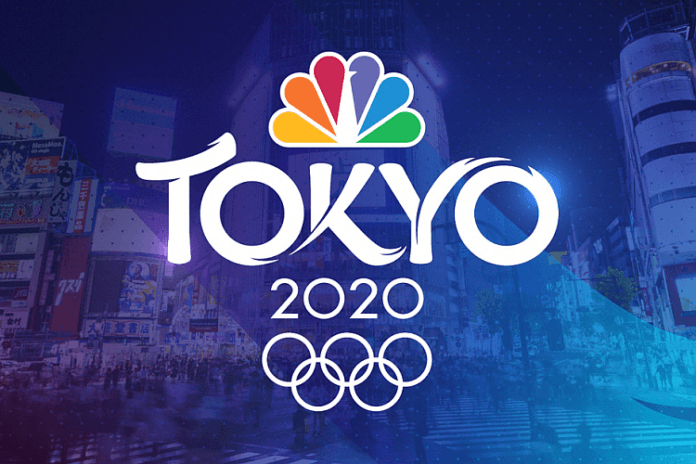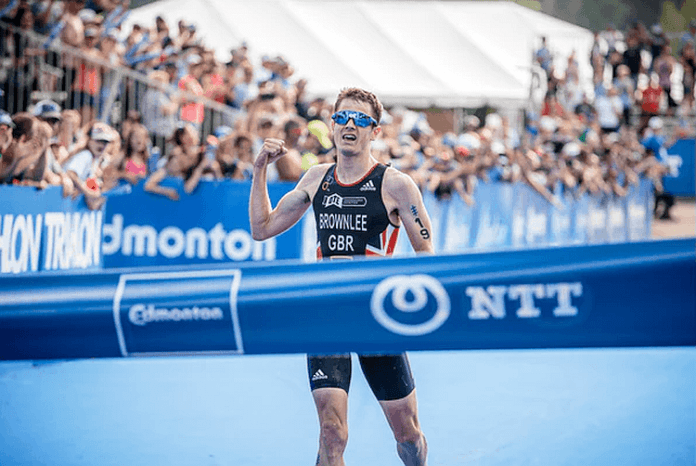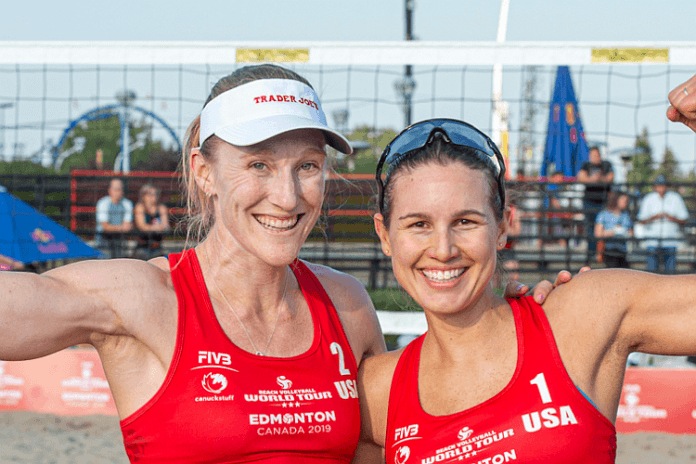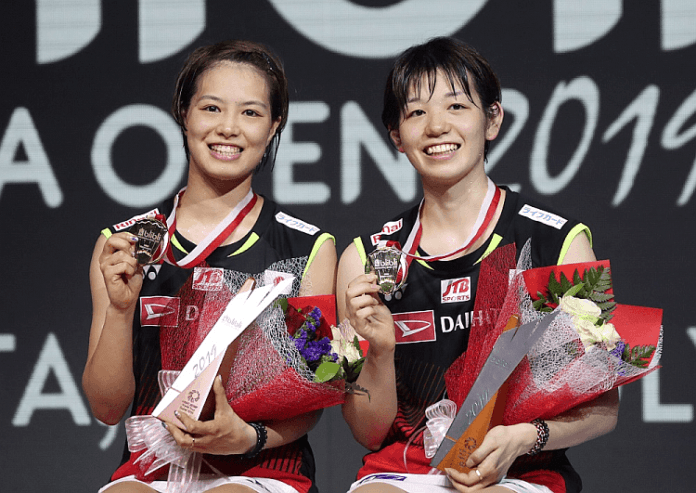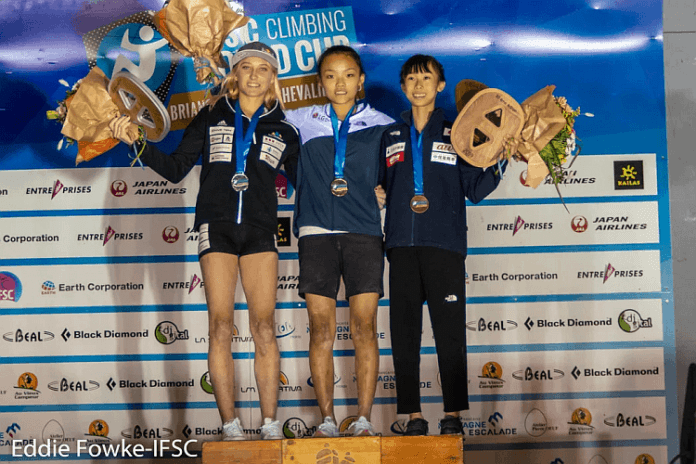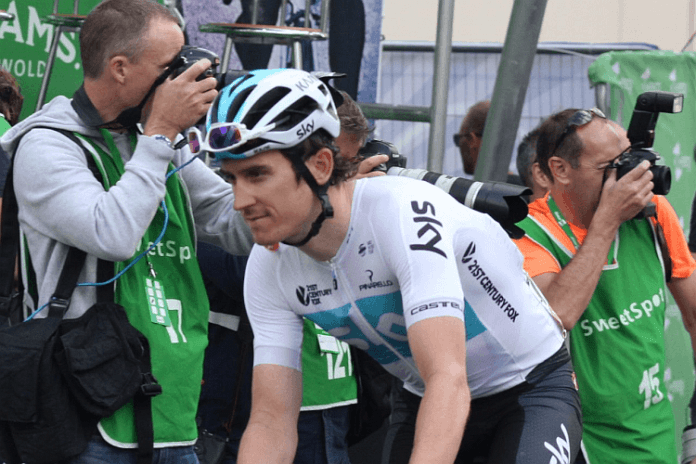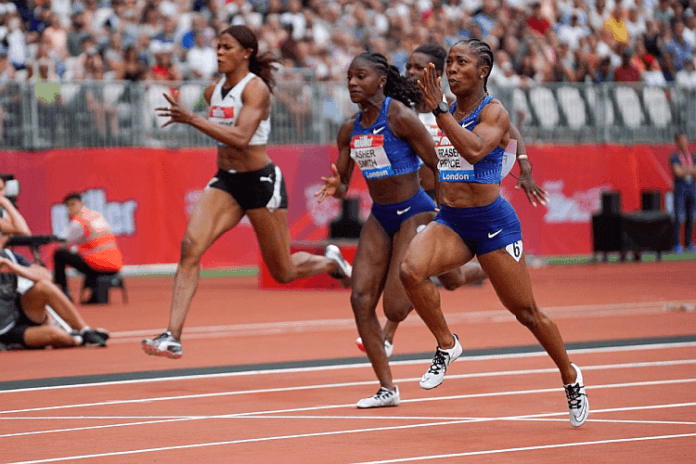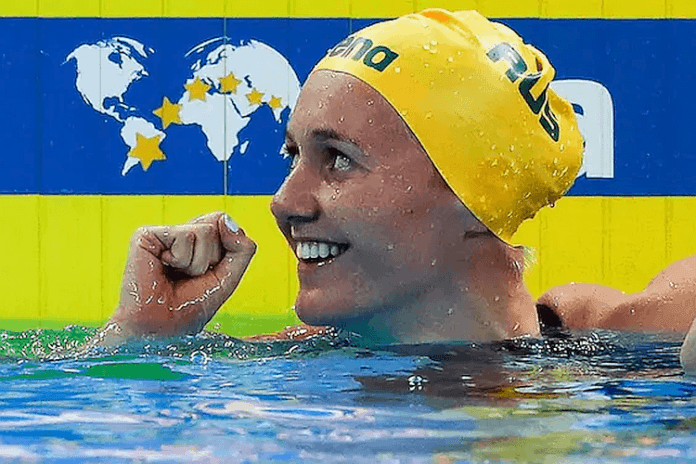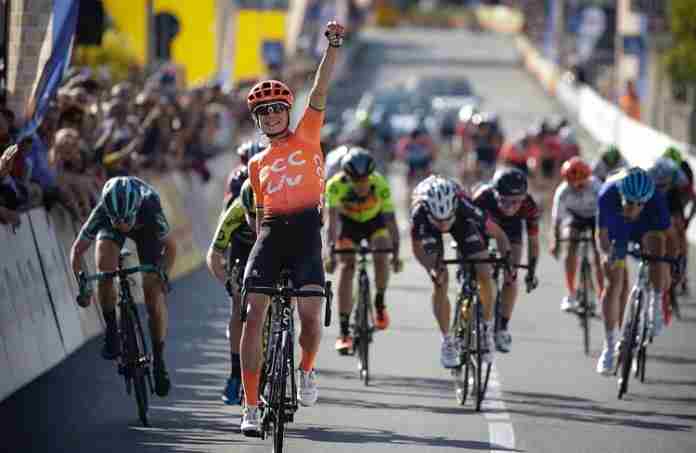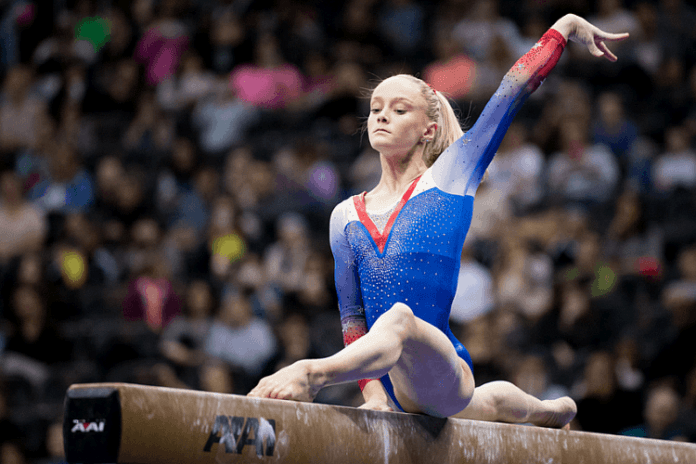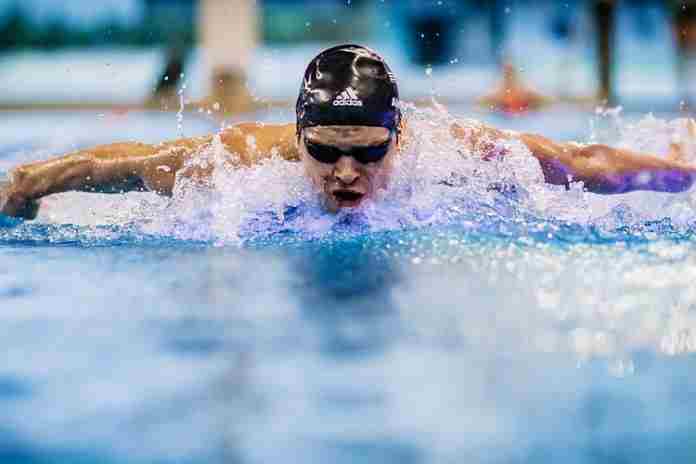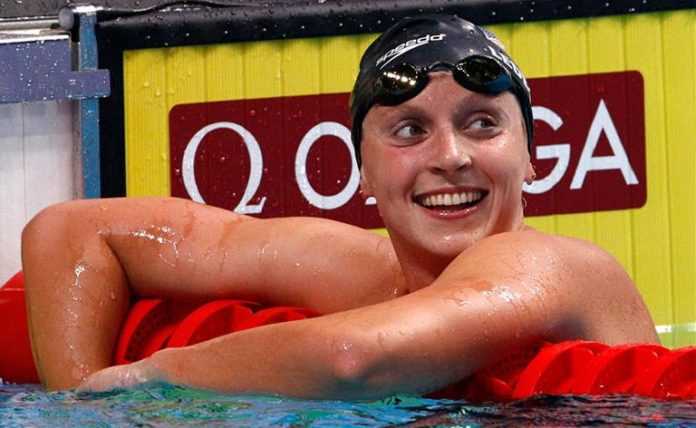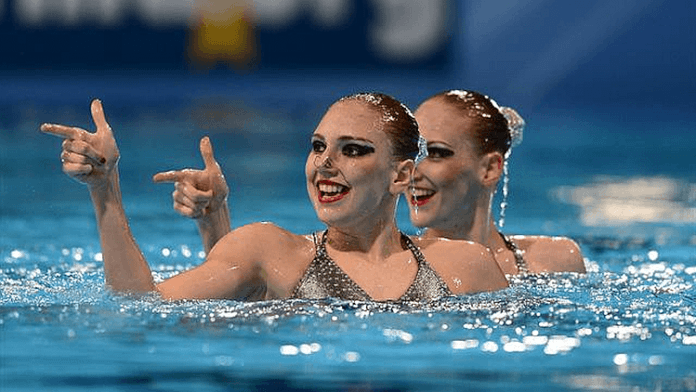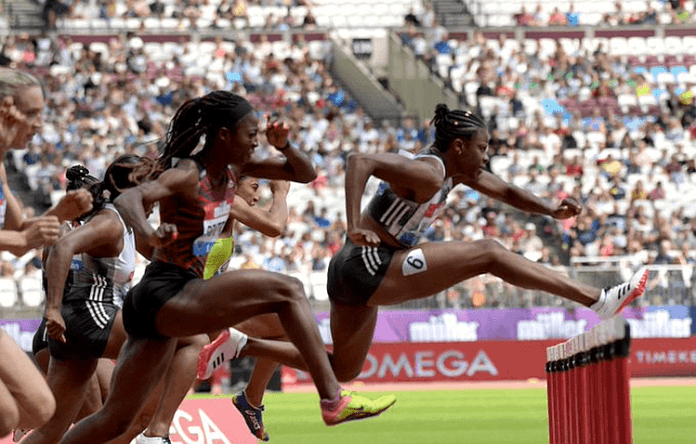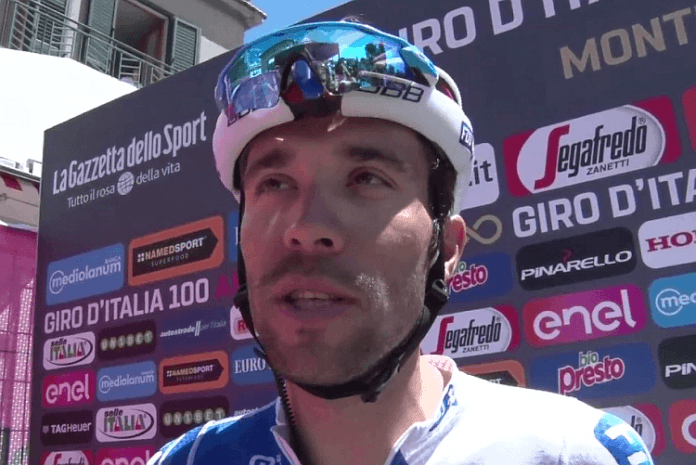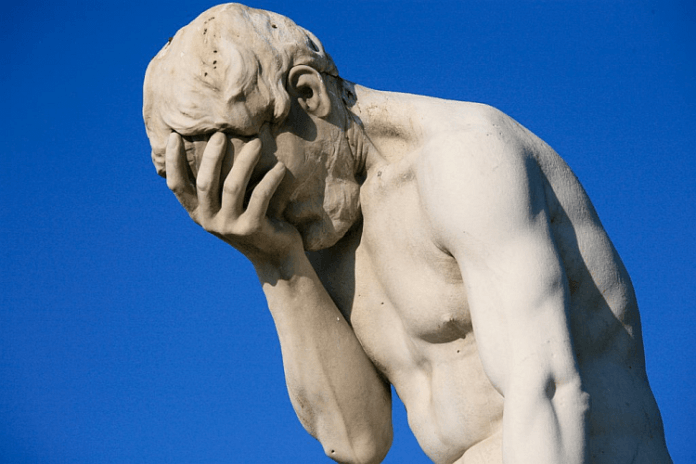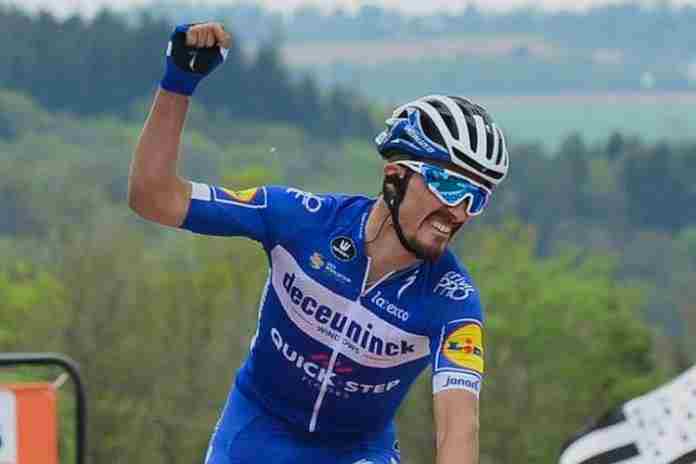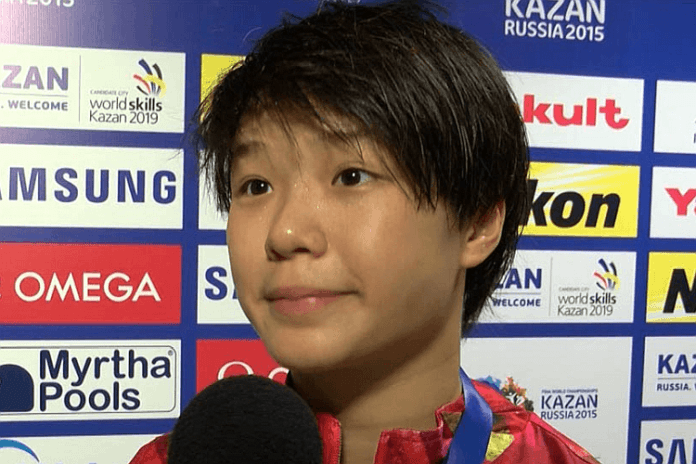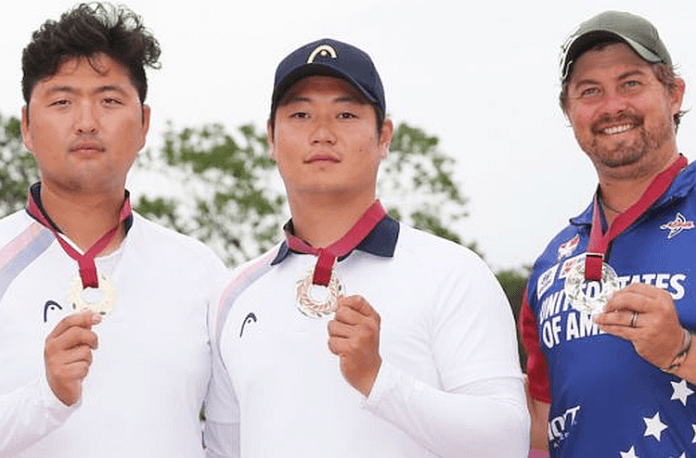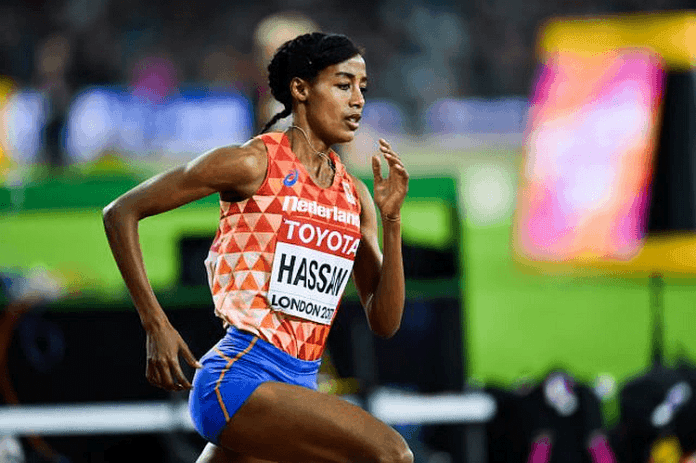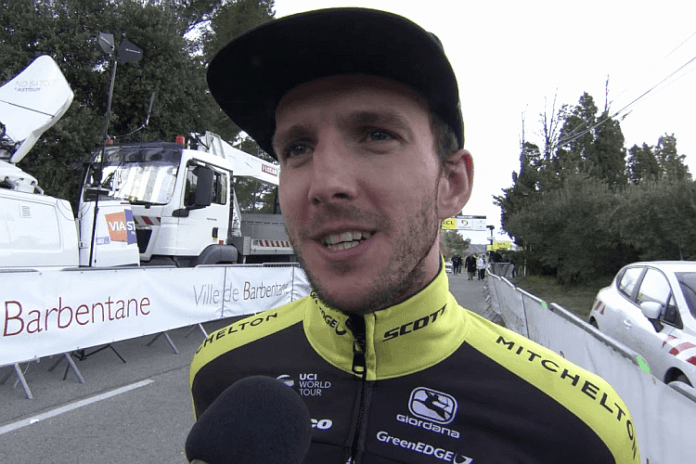At the 2003 World Championships, an 18-year-old Michael Phelps announced that he was someone who had to be watched at the Athens Olympics the following year by winning four gold medals, two silvers and setting five world records.
Caeleb Dressel already did more than that at the 2017 Worlds, winning seven gold medals, but without an Olympics to follow it up, he’s hardly a household name. But people are going to be hearing a lot more about him as he set his first world record with a sensational 49.50 semifinal win in the 100 m Butterfly at the Nambu University Aquatic Center in Gwangju (KOR) during the 2019 FINA World Championships. .
Dressel had shown that Phelps’s mark was under siege in the morning heats at 50.28 and in semi two, he had a significant lead as soon as he came out of the water off the start. He made the turn in 22.83, way ahead of Russia’s Andrey Minakov, and charged home with perfect form to finish a superb 32/100ths faster than Phelps’s 49.82 from the 2009 Worlds in Rome, during the plastic-suit era.
And he wasn’t done, swimming the 10th-fastest 50 m Free in history in 21.18 to secure the top seed in that event. No one was close; Brazil’s Bruno Fratus was second-fastest at 21.53. And both finals are still to come!
After the 50, Dressel said “Both those races hurt pretty bad. It doesn’t matter: you just have to go in with your strategy and stick to it. There is a lot that I need to clean up going into tomorrow: these times mean nothing.” Wow.
He wasn’t the only record-setter, either. American Regan Smith, 17, erased Missy Franklin from the record list for the 200 m Backstroke, winning her semifinal in 2:03.05, more than three seconds ahead of Canada’s Kylie Masse.
Smith was on fire from the start, taking a huge lead in the second semifinal on the first lap, that was well under world-record pace. At the halfway mark, Smith had more than a full-second lead on Masse and was 37/100ths ahead of Franklin’s WR pace. She poured it on and massacred Franklin’s mark of 2:04.06 from the 2012 London Games to set the World Record, the American Record and another World Junior Record. But she still has the final to go on Saturday!
“I’m in shock,” said Smith. “I really don’t believe it. I didn’t think I’d ever do that. It’s crazy but I am very happy with what I was able to do. I really just wanted to get myself in a good lane for tomorrow night’s final and I just hoping to slip under 2:06, that was my goal. If I [did] 2:05-mid or something, that would [have been] amazing. I exceeded my expectations and I’m super, super happy.”
Equally impressive was U.S. teammate Simone Manuel, the defending champion in the 100 m Freestyle, but who had flopped badly in her semifinal, finishing third. She started in lane one, far from the action in the middle of the pool with favorites Cate Campbell (AUS) and Sweden’s Sarah Sjostrom.
But she was ready, starting equal-fastest into the pool with Sjostrom and sprinting to the lead, taking almost a body-length on the Swede at the turn in a blistering 24.81, trailed by Sjostrom in lane four at 25.23 and Campbell in lane five at 25.29. The two swimmers in the middle lanes couldn’t see Manuel and as Campbell charged home and just passed Sjostrom to clock 52.43, Manuel had already touched in 52.04 to win once again. Sjostrom was third in 52.46.
Manuel didn’t just win, she showed that at her best, she’s as good as anyone in history. Her time of 52.04 is the third-fastest ever swum, behind only Sjostrom world record of 51.71 in 2017 and Campbell’s 52.03 from the 2018 Pan Pacific Championships. And, of course, it shattered Manuel’s own American mark of 52.27 from the 2017 World Championships.
More history: Manuel became only the second ever to repeat as World Champion in this event; East Germany’s Kornelia Ender did it in the first two Worlds, back in 1973 and 1975. Said Manuel afterwards, “I train really hard and that’s simply it. I had a rough race in the semifinal, but I got a lane and took advantage of the opportunity. I always feel like I have more to bring and can continue to improve. It’s about the love I have for the sport.”
Going into the race, there was little doubt that Campbell would win and possibly set the world record. She had chased down Manuel on the anchor of the Mixed 4×100 m Freestyle and looked all but invincible in the semis. But Manuel’s performance now brings her into the conversation as one of the best ever, going into Tokyo and a defense of her Olympic co-title from Rio.
And there was more from the best night of the Worlds so far, including two more world records:
● Defending champion Anton Chupkov (RUS) won the 200 m Breaststroke ahead of co-world record holders Matthew Wilson of Australia and Ippei Watanabe (JPN) by setting the world record himself in 2:06.12. Wilson led for most of the race and was on pace for another world record – he equaled it in the semifinals – but then Chupkov turned on the jets on the final lap to move from fifth to first in 2:06.10. Wilson swam 2:06.68, 1/100th off his semifinal WR time for second and Watanabe won the bronze in 2:06.73. Those three marks and Wilson’s semi are now four of the five fastest times in history.
● Russia’s Evgeny Rylov, clearly the favorite, swam the 10th-fastest 200 m Backstroke in history to win his second straight World Championship in 1:53.40, ahead of repeat silver medalist Ryan Murphy of the U.S. (1:54.12). The Russian was in front from the start and was shook off a Murphy challenge on the third lap.
● Australia, as expected, won the 4×200 m Freestyle relay in 7:00.85, the sixth-fastest performance ever, with Mack Horton anchoring in 1:44.85, the fastest split of the race. Russia was second and the U.S. finished third.
● Without a challenge from American Lilly King, Russia’s Yuliya Efimova won her third Worlds in the 200 m Breast in 2:20.17, more than two seconds ahead of Tatjana Schoenmaker of South Africa (2:20.17). She’s now won more titles in this event than anyone else.
It was quite a day, but there is more to come. Summaries so far:
FINA World Aquatics Championships
Gwangju (KOR) ~ 12-28 July 2019
(Full results here)
SWIMMING
Men
100 m Freestyle: 1. Caeleb Dressel (USA), 46.96 (American Record; old, 47.17, Dressel, 2018); 2. Kyle Chalmers (AUS), 47.08; 3. Vladislav Grinev (RUS), 47.82; 4. Blake Pieroni (USA), 47.86; 5. Marcelo Chierighini (ITA), 47.93; 6. Nandor Nemeth (HUN), 48.10; 7. Clement Mignon (FRA), 48.43; 8. Breno Correia (BRA), 48.90.
200 m Freestyle: 1. Yang Sun (CHN), 1:44.93; 2. Katsuhiro Matsumoto (JPN), 1:45.22; 3. tie, Martin Malyutin (RUS) and Duncan Scott (GBR), 1:45.63; 5. Filippo Megli (ITA), 1:45.67; 6. Clyde Lewis (AUS), 1:45.78; 7. Dominik Kozma (HUN), 1:45.90; disqualified – Danas Rapsys (LTU).
400 m Freestyle: 1. Sun (CHN), 3:42.44; 2. Mack Horton (AUS), 3:43.17; 3. Gabriele Detti (ITA), 3:43.23; 4. Danas Rapsys (LTU), 3:43.50; 5. Marco de Tullio (ITA), 3:44.86; 6. Xinjie Ji (CHN), 3:45.64; 8. Zane Grothe (USA), 3:45.78.
800 m Freestyle: 1. Gregorio Paltrinieri (ITA), 7:39.27; 2. Henrik Christiansen (DEN), 7:41.28; 3. David Aubry (FRA), 7:42.08; 4. Jack McLoughlin (AUS), 7:42.64; 5. Gabriele Detti (ITA), 7:43.89; 6. Sun (CHN), 7:45.01; 7. Sergii Frolov (RUS), 7:47.32; 8. Mykhallo Romanchuk (UKR), 7:49.32.
4×100 m Freestyle: 1. United States (Caeleb Dressel, Blake Pieroni, Zach Apple, Nathan Adrian), 3:09.06; 2. Russia (Grinev, Morozov, Kolesnikov, Rylov), 3:09.97; 3. Australia (McEvoy, Lewis, Graham, Chalmers), 3:11.22; 4. Italy, 3:11.39; 5. Great Britain, 3:11.81; 6. Brazil, 3:11.99; 7. Hungary, 3:12.85; 8. France, 3:13.34.
4×200 m Freestyle: 1. Australia (Clyde Lewis, Kyle Chalmers, Alexander Graham, Mack Horton), 7:00.85; 2. Russia (Dovgalyuk, Vekovishchev, Krasnykh, Malyutin), 7:01.81; 3. United States (Andrew Seliskar, Blake Pieroni, Zach Apple, Townley Haas), 7:01.98; 4. Italy, 7:02.01; 5. Great Britain, 7:02.04; 6. China 7:04.74; 7. Brazil, 7:07.64; 8. Germany, 7:07.65.
100 m Backstroke: 1. Jiayu Xu (CHN), 52.43; 2. Evgeny Rylov (RUS), 52.67; 3. Mitch Larkin (AUS), 52.77; 4. Ryan Murphy (USA), 52.78; 5. Matt Grevers (USA), 52.82; 6. Ryosuke Irie (JPN), 53.22; 7. Guilherme Guido (BRA), 53.26; 8. Robert Glinta (ROU), 54.22.
200 m Backstroke: 1. Evgeny Rylov (RUS), 1:53.40; 2. Murphy (USA), 1:54.12; 3. Luke Greenbank (GBR), 1:55.85; 4. Radoslaw Kawecki (POL), 1:56.37; 5. Ryosuke Irie (JPN), 1:56.52; 6. Jacob Pebley (USA), 1:56.72; 7. Adam Telegdy (HUN), 1:56.86; 8. Markus Thornmeyer (CAN), 1:58.50.
50 m Breaststroke: 1. Adam Peaty (GBR), 26.06; 2. Felipe Lima (BRA), 26.66; 3. Joao Gomes Junior (BRA), 26.69; 4. Kirill Prigoda (RUS), 26.72; 5. Ilya Shymanovich (BLR), 26.85; 6. Zibei Yan (CHN), 26.86; 7. Michael Andrew (USA), 26.93; disqualified – Fabio Scozzoli (ITA).
100 m Breaststroke: 1. Peaty (GBR), 57.14; 2. James Wilby (GBR), 58.46; 3. Zibei Yan (CHN), 58.63; 4. Yashuhiro Koseki (JPN), 58.93; 5. Prigoda (RUS), 59.09; 6. Andrew Wilson (USA), 59.11; 7. Dmitriy Balandin (KAZ), 59.14; 8. Anton Chupkov (RUS), 59.19. (In semifinals: Peaty, 56.88, World Record; old, 57.10, Peaty, 2018).
200 m Breaststroke: 1. Anton Chupkov (RUS), 2:06.12 (World Record; old, 2:06.67, Ippei Watanabe (JPN), 2017, and Matthew Wilson (AUS), in semifinals); 2. Matthew Wilson (AUS), 2:06.68; 3. Ippei Watanabe (JPN), 2:06.73; 4. Zac Stubblety-Cook (RSA), 2:07.36; 5. Marco Koch (GER), 2:07.60; 6. Andrew Wilson (USA), 2:08.10; 7. Dmitriy Balandin (KAZ), 2:08.25; 8. Erik Persson (SWE), 2:08.39.
50 m Butterfly: 1. Caeleb Dressel (USA), 22.35 (American Record; old, 22.57, Dressel, in semifinals); 2. Oleg Kostin (RUS), 22.70; 3. Nicholas Santos (BRA), 22.79; 4. Michael Andrew (USA), 22.80; 5. Szebasztian Szabo (HUN), 22.90; 6. Andrii Govorov (UKR), 22.91; 7. Benjamin Proud (GBR), 23.01; 8. Andrey Zhilkin (RUS), 23.11.
200 m Butterfly: 1. Kristof Milak (HUN), 1:50.73 (World Record; old, 1:51.51, Michael Phelps (USA), 2009); 2. Daiya Seto (JPN), 1:53.86; 3. Chad le Clos (RSA), 1:54.15; 4. Federico Burdisso (ITA), 1:54.39; 5. Denys Kesyl (UKR), 1:54.79; 6. Zach Hartung (USA), 1:55.69; 7. Leonardo de Deus (FRA), 1:55.96; 8. Tamas Kenderesi (HUN), 1:57.10.
Women
100 m Freestyle: 1. Simone Manuel (USA), 52.04 (American Record; old, 52.27, Manuel, 2017); 2. Cate Campbell (AUS), 52.43; 3. Sarah Sjostrom (SWE), 52.46; 4. Emma McKeon (AUS), 52.75; 5. Taylor Ruck (CAN), 53.03; 6. Femke Heemskerk (NED), 53.05; 7. Mallory Comerford (USA), 53.22; 8. Freya Anderson (GBR), 53.44.
200 m Freestyle: 1. Federica Pellegrini (ITA), 1:54.22; 2. Ariarne Titmus (AUS), 1:54.66; 3. Sarah Sjostrom (SWE), 1:54.78; 4. Siobhan Haughey (HKG), 1:54.98; 5. Junxuan Yang (CHN), 1:55.43 (World Junior Record); 6. Penny Oleksiak (CAN), 1:56.59; 7. Charlotte Bonnet (FRA), 1:56.95; 8. Rio Shirai (JPN), 1:57.14.
400 m Freestyle: 1. Ariarne Titmus (AUS), 3:58.76; 2. Katie Ledecky (USA), 3:59.97; 3. Leah Smith (USA), 4:01.29; 4. Ajna Kesely (HUN), 4:01.31; 5. Jianjiahe Wang (CHN), 4:03.67; 6. Boglarka Kapas (HUN), 4:05.36; 7. Anna Egorova (RUS), 4:06.16; 8. Veronika Andrusenko (RUS), 4:08.60.
1,500 m Freestyle: 1. Simona Quadarella (ITA), 15:40.89; 2. Sarah Kohler (GER), 15:48.83; 3. Jianjiahe Wang (CHN), 15:51.00; 4. Ashley Twichell (USA), 15:54.19; 5. Maddy Gough (AUS), 15:59.40; 6. Ajna Kesely (HUN), 16:01.35; 7. Kiah Melverton (AUS), 16:01.38; 8. Mireia Belmonte (ESP), 16:02.10.
4×100 m Freestyle: 1. Australia (Bronte Campbell, Throssell, McKeon, Cate Campbell), 3:30.21; 2. United States (Mallory Comerford, Abbey Weitzeil, Kelsi Dahlia, Simone Manuel), 3:31.02 (American Record; old, 3:31.72, National Team, 2017); 3. Canada (Sanchez, Ruck, Oleksiak, MacNeil), 3:31.78; 4. Netherlands, 3:35.32; 5. China, 3:35.83; 6. Sweden, 3:36.33; 7. Japan, 3:36.79; 8. Germany, 3:39.07.
4×200 m Freestyle: 1. Australia (Ariarne Titmus, Madison Wilson, Brianna Throssell, Emma McKeon), 7:41.50 (World Record; old, 7:42.08, China, 2009); 2. United States (Simone Manuel, Katie Ledecky, Melanie Margalis, Katie McLoughlin), 7:41.87 (American Record; old, 7:42.56, National Team, 2009); 3. Canada (Sanchez, Ruck, Overholt, Oleksiak), 7:44.35; 4. China, 7:46.22; 5. Russia, 7:48.25; 6. Hungary, 7:54.57; 7. Germany, 7:55.63; 8. Japan, 7:56.31.
50 m Backstroke: 1. Olivia Smoliga (USA), 27.33 (American Record; old, 27.43, Smoliga, 2018); 2. Etiene Medeiros (BRA), 27.44; 3. Daria Vaskina (RUS), 27.51; 4. tie, Georgia Davies (GBR) and Kaylee McKeown (AUS), 27.65; 6. Kathleen Baker (USA), 27.69; 7. Caroline Pilhatsch (AUT), 27.78; 8. Kira Toussaint (FRA), 27.85.
100 m Backstroke: 1. Kylie Masse (CAN), 58.60; 2. Minna Atherton (AUS), 58.85; 3. Smoliga (USA), 58.91; 4. Taylor Ruck (CAN), 58.96; 5. McKeown (AUS), 59.10; 6. tie, Baker (USA) and Natsumi Sakai (JPN), 59.56; 8. Vaskina (RUS), 59.74.
100 m Breaststroke: 1. Lilly King (USA), 1:04.93; 2. Yuliya Efimova (RUS), 1:05.49; 3. Martina Carraro (ITA), 1:06.36; 4. Reona Aoki (JPN), 1:06.40; 5. Jingyao Yu (CHN), 1:06.56; 6. Tatjana Schoenmaker (RSA), 1:06.60; 7. Molly Renshaw (GBR), 1:06.96; 8. Arianna Castiglioni (ITA), 1:07.06.
200 m Breaststroke: 1. Efimova (RUS), 2:20.17; 2. Tatjana Schoenmaker (RSA), 2:22.52; 3. Sydney Pickrem (CAN), 2:22.90; 4. Shiwen Ye (CHN), 2:23.15; 5. Molly Renshaw (GBR), 2:23.78; 6. Kelsey Lauren Wog (CAN), 2:25.14; 7. Fanny Lecluyse (BEL), 2:25.23; 8. Kaylene Corbett (RSA), 2:26.62.
100 m Butterfly: 1. Margaret MacNeil (CAN), 55.83; 2. Sarah Sjostrom (SWE), 56.22; 3. Emma McKeon (AUS), 56.61; 4. Elena di Liddo (ITA), 57.07; 5. Brianna Throssell (AUS), 57.09; 6. Kelsi Dahlia (USA), 57.11; 7. Louise Hansson (SWE), 57.16; 8. Marie Wattel (FRA), 57.29.
200 m Butterfly: 1. Boglarka Kapas (HUN), 2:06.78; 2. Hali Flickinger (USA), 2:06.95; 3. Katie Drabot (USA), 2:07.04; 4. Franziska Hentke (GER), 2:07.30; 5. Alys Thomas (GBR), 2:07.48; 6. Liliana Szilagyi (HUN), 2:07.68; 7. Svetlana Chimrova (RUS), 2:08.70; 8. Laura Stephens (GBR), 2:09.35.
200 m Individual Medley: 1. Katinka Hosszu (HUN), 2:07.53; 2. Shiwen Ye (CHN), 2:08.60; 3. Sydney Pickrem (CAN), 2:08.70; 4. Melanie Margalis (USA), 2:08.91; 5. Rika Omoto (JPN), 2:09.32; 6. Seoyeong Kim (KOR), 2:10.12; 7. Siobhan O’Connor (GBR), 2:10.43; disqualified – Yui Ohashi (JPN).
Mixed
4×100 m Medley: 1. Australia (Larkin, Wilson, McKeon, Cate Campbell), 3:39.08; 2. United States (Ryan Murphy, Lilly King, Caeleb Dressel, Simone Manuel), 3:39.10; 3. Great Britain (Davies, Peaty, Guy, Anderson), 3:40.68; 4. Russia, 3:40.78; 5. Canada, 3:43.06; 6. Italy, 3:43.27; 7. Germany, 3:45.07; disqualified – Netherlands.










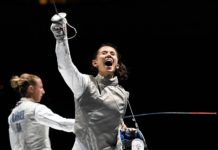







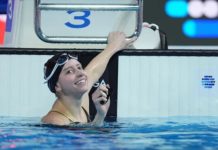


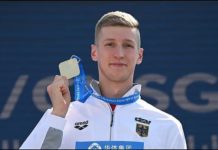
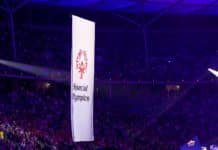


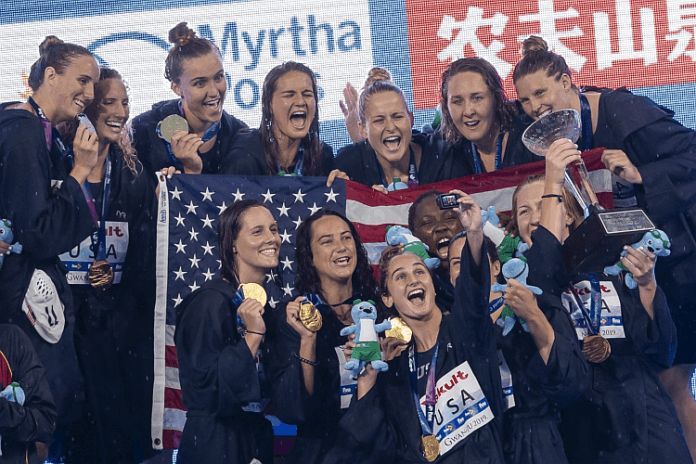
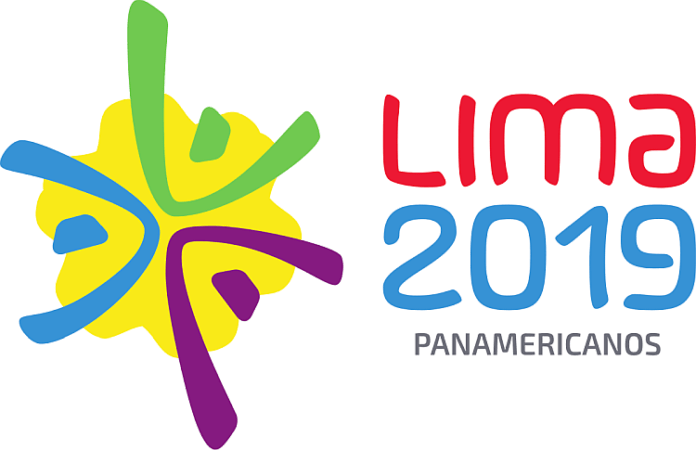
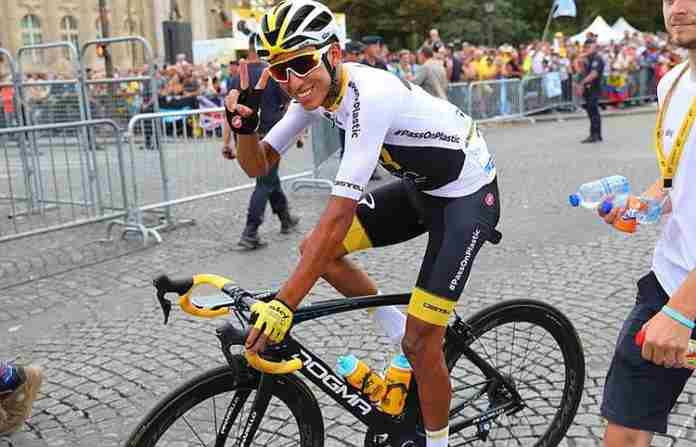
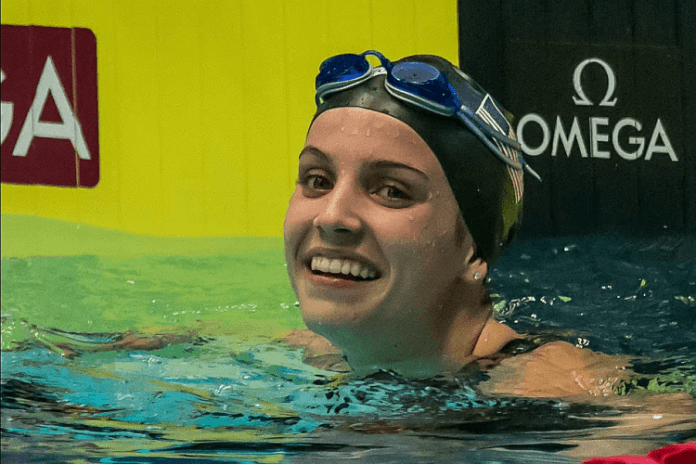

 Olympic sport is often ignored in the U.S., even at the level of the World Championships, when the same athletes who will be in the Olympic Games the following year are competing.
Olympic sport is often ignored in the U.S., even at the level of the World Championships, when the same athletes who will be in the Olympic Games the following year are competing.